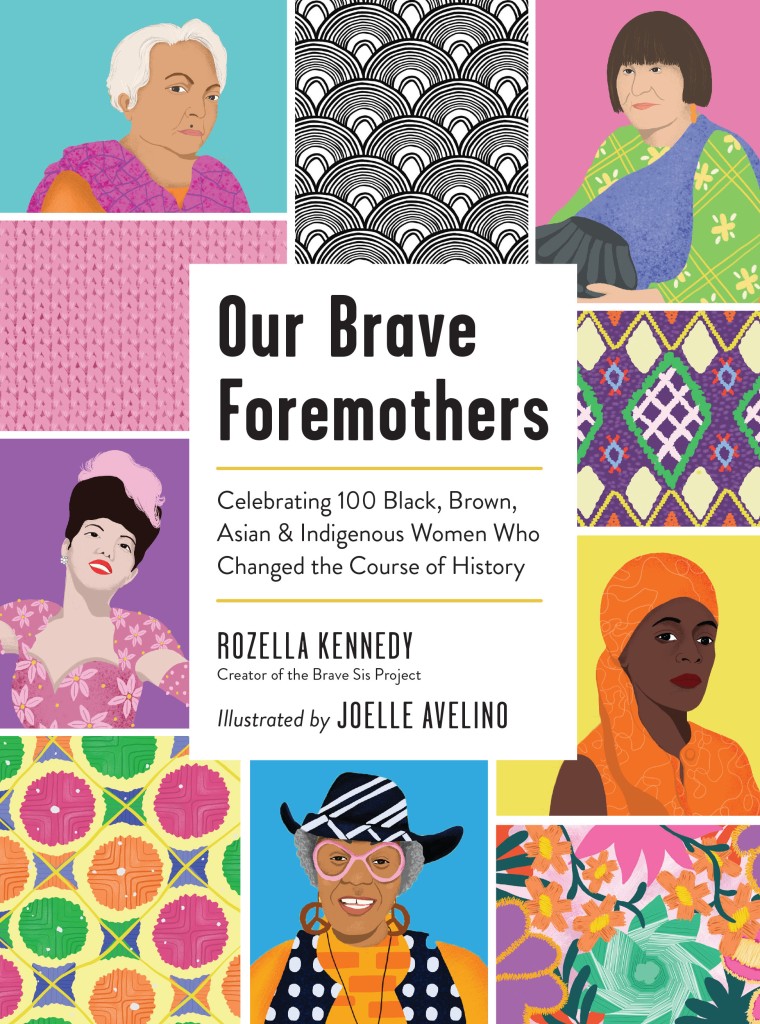
Stories connected Rozella Kennedy and me back in 2009 when we were both contributors to Candace Walsh’s anthology Ask Me About My Divorce. In 2023 I got to meet her in person and learn about her beautiful new book Our Brave Foremothers: Celebrating 100 Black, Brown, Asian & Indigenous Women Who Changed the Course of History (Workman, 2023). Our Brave Foremothers raises an important question: “When we think about women’s history, who do we consider and who do we omit?”. In response to this question, the book honors 100 brave–and often forgotten–foremothers with short portrayals of each accompanied by drop dead gorgeous illustrations by Joelle Avelino. Some of the names may be familiar–Stonewall hero Marsha P. Johnson and farmworker organizer Delores Huerta. But have you heard of Ada Blackjack, the Iñupiat woman who went on an Arctic polar expedition in the early 1900s to earn money for her son’s tuberculosis treatment? I hadn’t! (Read about Ada’s story below).
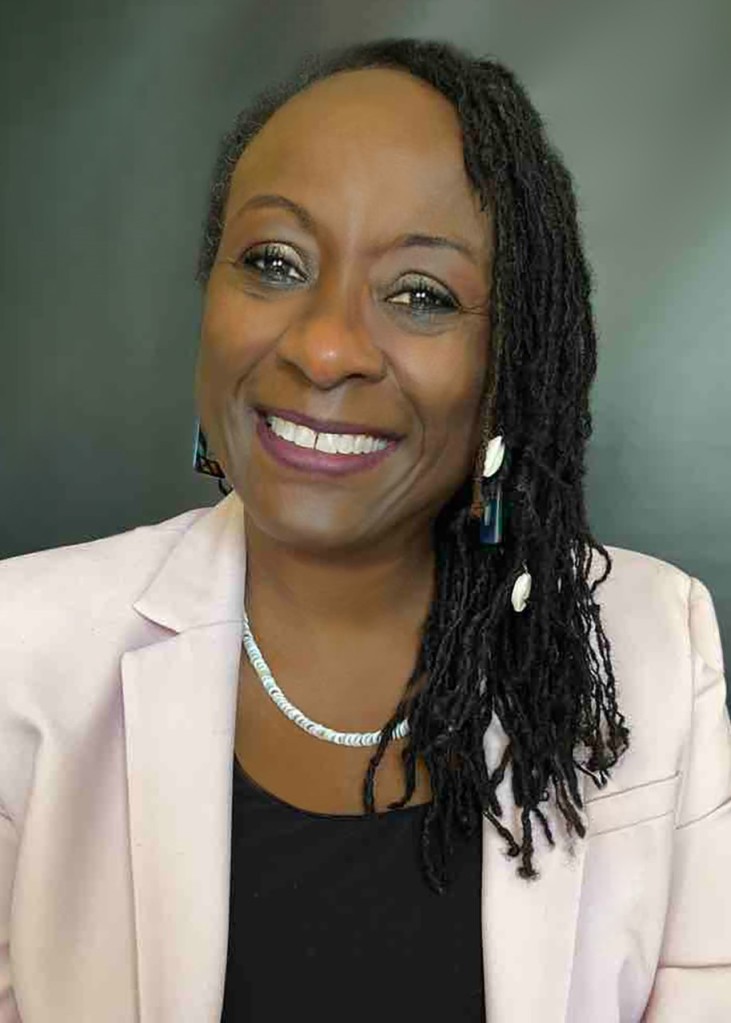
I’m always interested in the highs and lows of the process of writing a book and sending it out into the world. In the interview below, Rozella tells us a bit about the book and its inspiration as well as how she dealt with dead ends in researching some of the women of this book. Want to learn more? You can attend the first Brave Sis Beloved Community Instagram Live on February 4 at 9:30 am Pacific. Topic: “Diversity Fatigue? Just Say No!”
Theo Nestor: What’s this book about and why did you need to write it?
Rozella Kennedy: Our Brave Foremothers is an intergenerational, intercultural love letter to 100 amazing Black, Brown, Asian, and Indigenous she-roes, many of whom are not household names (though a few are!)
This book was an outcome of something I started in 2019: Brave Sis Project. I’ve been publishing the world’s only guided journal + day-planner featuring BIPOC women in history for four years now, as well as using social media platforms to elevate what I call #sistorylessons, and along the way I connected with Workman Press (Hachette) who were interested in capturing some of the women’s stories to create an illustrated activity book.
The original impetus for Brave Sis Project was a “visitation” I received on Christmas Day, 2019 (I believe it was the spirit of my maternal grandmother) saying “tell my story.” I bolted out of bed and was somewhat possessed, starting to research stories of (at that time) famous women from my Black American heritage whom I wanted to honor. In no time, I expanded my lens to include Latina, Asian, Indigenous, and other Women of Color who inspired me. When I decided to pivot away from the celebrity types (for the most part) and focus on those women whose stories were less well-known, it felt like a combination of treasure hunt and that old game show “Queen for a Day.” I LOVE sharing these histories in a way that is so positive and surprising.
The book feels like it’s part of my life’s purpose: to create joyful celebration for and of women, and to also give my BIPOC sisters a chance to see their/our own legacies and histories with a sense of pride. I also am hoping that Women of Color will see and celebrate each other in sisterhood across cultures and races—this feel so important for us to all rise together. Naturally, my white sisters are also invited to the party. It’s great for them to discover so much history that has been obscured to us, and hopefully Our Brave Foremothers sets everyone on a path to delving into more untold stories and building more authentic connection and appreciation.
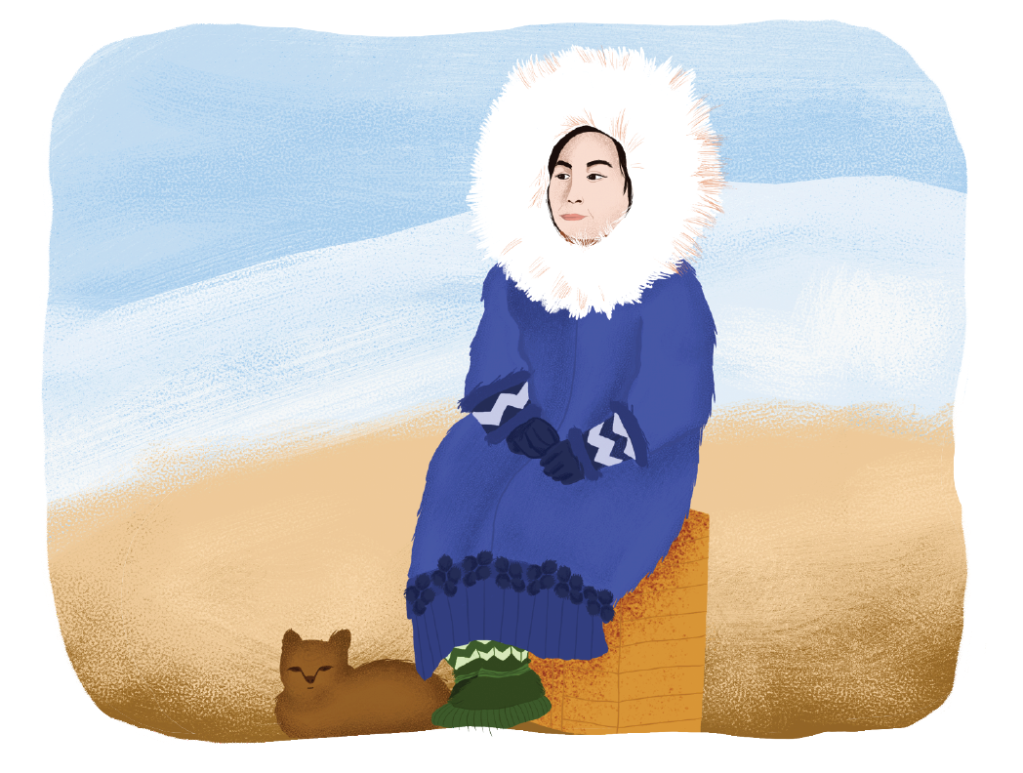
Theo Nestor: Who is one foremother most of us don’t know of but absolutely should?
Rozella Kennedy: The one woman who I always come back to is the first one in the book, Ada Blackjack. She was an Iñupiat woman who went on an Arctic polar expedition in the early 1900s to earn money for her son’s tuberculosis treatment. Everything went wrong; the white dudes didn’t know what they were getting into: wrecked their ship, ran out of food, found very little game to hunt… Rescue ships couldn’t get through the ice to retrieve them, and after several months of being stranded, one day three of them set off on foot for help. Well, they never came back, and Ada – who had no great outdoorswomen skills, just figured out how to trap, fish, build structures to protect herself. She even nursed the one remaining expeditioner (who was horrendous to her, by the way) as he wasted away from scurvy. When a rescue crew finally found her months and months later, they said she was so well set up, she could have made it up there another year!
Ada’s story did not have a picture-book ending. The expedition financier (who did not go on the trip) took all the credit and wrote a book about “the Female Robinson Crusoe,” yet she saw no gain from her ordeal. In fact, for a while the media speculated that she’d purposefully neglected the sick guy. So instead of being celebrated, she was vilified.
Ada did get her son back, but she died in poverty. And I want her to be lionized today as the she-ro she was. So, I’m trying to right a historic wrong, in a very simple way, and also inspire other people to keep pushing. Whatever we are up against, it isn’t like we have to learn survivalist skills on the fly above the Arctic circle!
You know, the New York Times did a “Forgotten No More” feature on her a few weeks ago, and I don’t think the editor was reading my book to get more inspiration, but it felt good to be in sync with that kind spirit of recognition!
Theo Nestor: What were the greatest challenges you faced while writing the book?
Rozella Kennedy: Some of the stories were quite hard to research and corroborate. Each entry had to be double fact-checked and we needed triple sources for most of the facts. Oh, and quotes: we wanted to include a quote from each woman, but there were a few for whom you can’t find any interview or record of their own words. That was frustrating!
There were also some women whose lives were so obscured there wasn’t much biographical information to go on, in terms of personal life or anything besides “what she did.” I ended up in some instances asking questions about why so much of their fuller story was undocumented. The other challenge was that for many of these women, there were no reliable photographic or illustrated resources to create their portrait from. Our amazing illustrator, Joelle Avelino, had to get quite creative in some cases, such as that of the lawyer Charlotte E. Ray, the first Black American woman to pass the bar exam: most of the photos that you will see when you google that name are in fact of the opera singer Marian Anderson. Logically, it’s obvious: Charlotte died in 1911, they weren’t taking portrait photos of Black Americans in that era, and also the hair and clothes are all wrong for the early 1900s! So, I had to do a bit of sleuthing, which was interesting, but it made the whole thing more complicated and longer to put together.
Theo Nestor: What has it been like so far to put this book out into the world?
Rozella Kennedy: I wish that more bookstores and gift shops knew about the book because it’s so beautiful and so easy to relate to and enjoy. It’s small enough to fit in a purse but also nice for a coffee table.
I was at the Smithsonian National African American History and Culture Museum recently, and I went into the gift shop to look for holiday gifts for my family. On the shelves, there were all these books like mine but (heck!) not as good, and I was like, “WHERE is my book?!” So, I went to the register to get the contact for the buyer and asked my editor to reach out to them. I mean sure, if I could just travel around the country showing folks this publication, I would, but that’s ridiculous. Also, as most writers know, when you are trying to promote your own book, people just act like maybe it’s just some cheesy thing. I self-publish the journals, so I would expect people to be circumspect, but this is a book with a major house. Tell you what though, every time someone bothers to check out either publication, they are really pleased with what they see.
On the plus side, I’ve heard from scores upon scores of people across ages, races, cultures (and even a few guys) who love the book and show it off to all their friends. And while some of the profiles are not “Goodnight Moon”-level storybook (some are NSFW, because history is not always pretty), I enjoy hearing when parents read some of the stories to their kiddos at bedtime. Despite what some school districts want to impose, history is important, and it’s based in fact.
We can all be uplifted, if we just take a moment to learn. This book makes it exciting and inspiring.
Theo Nestor: Thank you, Rozella!
Rozella Kennedy is a thought-leader, author and content creator specializing in equity, intersectional women’s history and storytelling as a tool for social change. In addition to Our Brave Foremothers, she is the force behind Brave Sis Project, whose publications and social media platforms have reached thousands of readers and engagers in over a dozen countries on six continents.She also serves as Director of Impact and Equity for global strategic advisory firm Camber Collective. Follow Brave Sis Project on Instagram (Facebook and TikTok) and sign up for the newsletter at the website (www.bravesis.com). Sign up for updates at www.bravesis.com or better yet, follow Brave Sis Project on Instagram (www.instagram.com/bravesisproject) for forthcoming live events and other supports for learning about intersectional feminist history, building deeper awareness and pride, and for those who are interested in allyship, ways to do it more authentically. Comment the word “COLOR” to any Instagram post to receive a free coloring book through March 2024.
Images from Our Brave Foremothers included above are illustrated by Joelle Avelino, used courtesy of Workman Publishing. Copyright © 2023
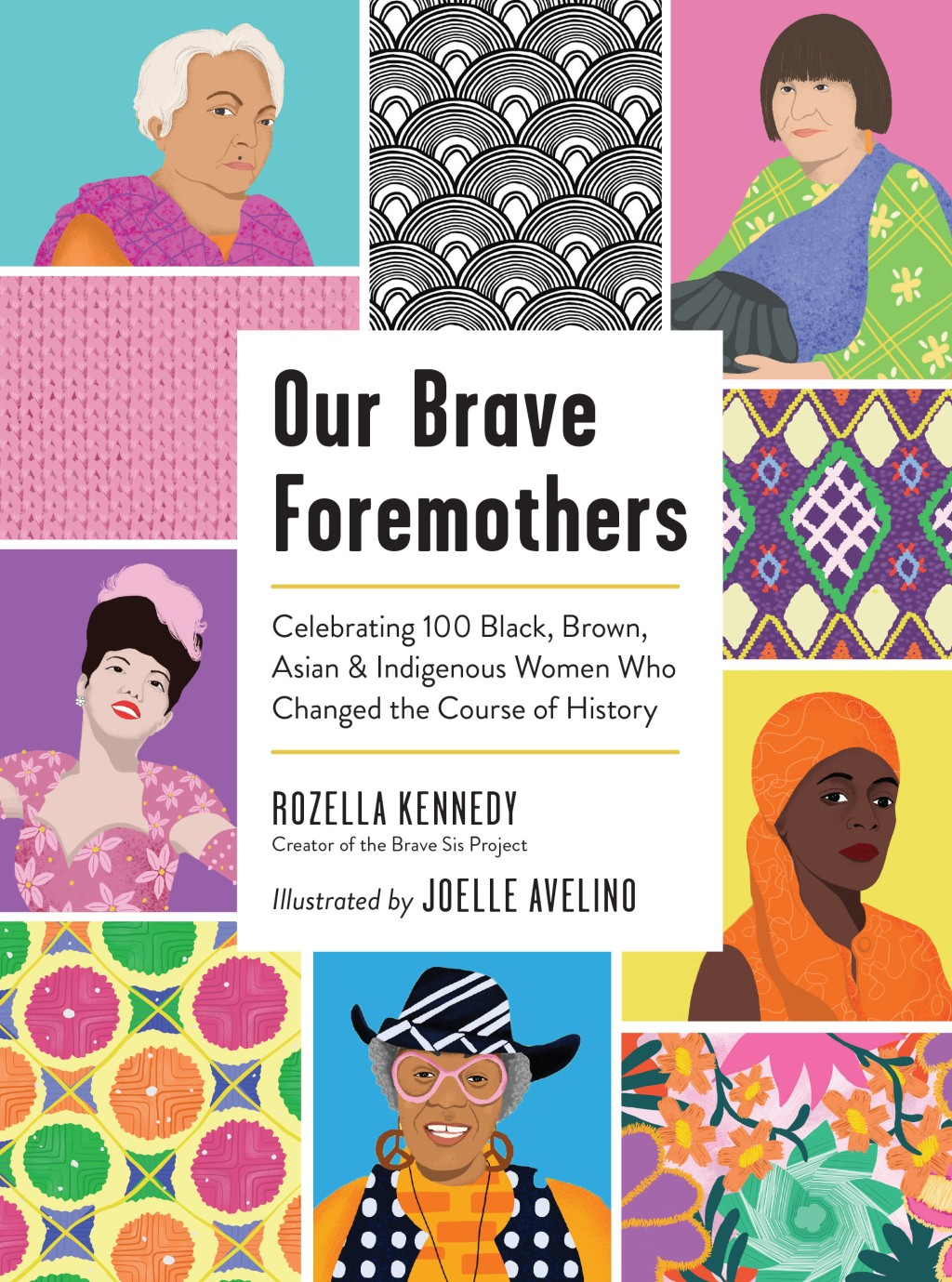

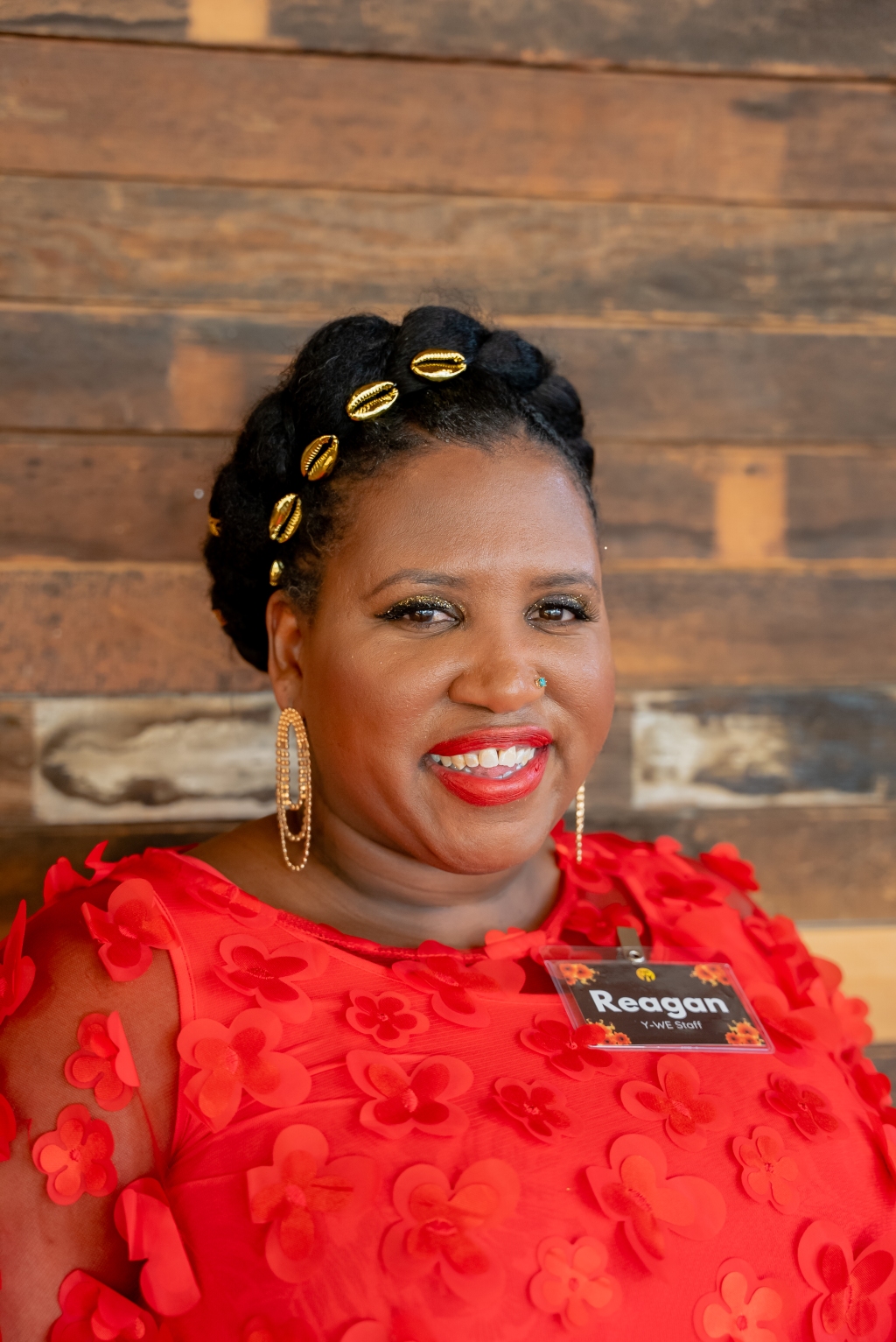
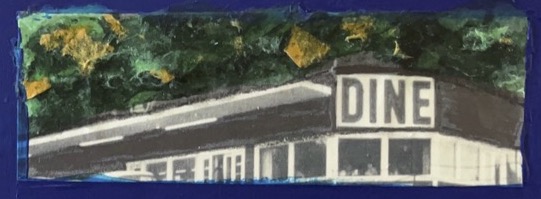
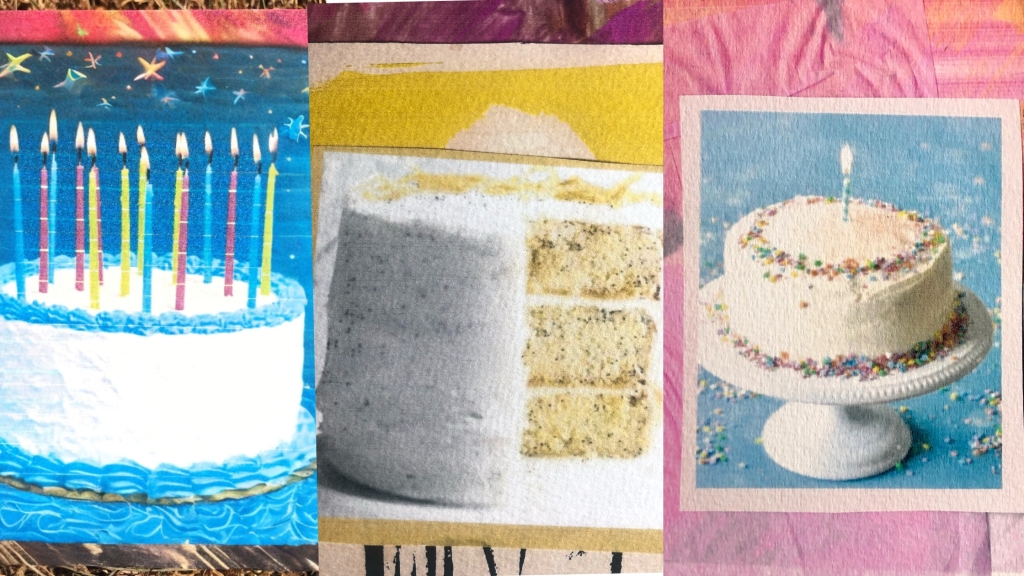
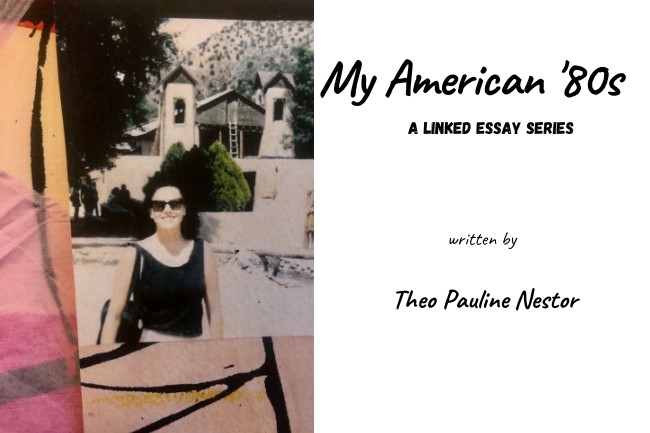
Leave a Reply